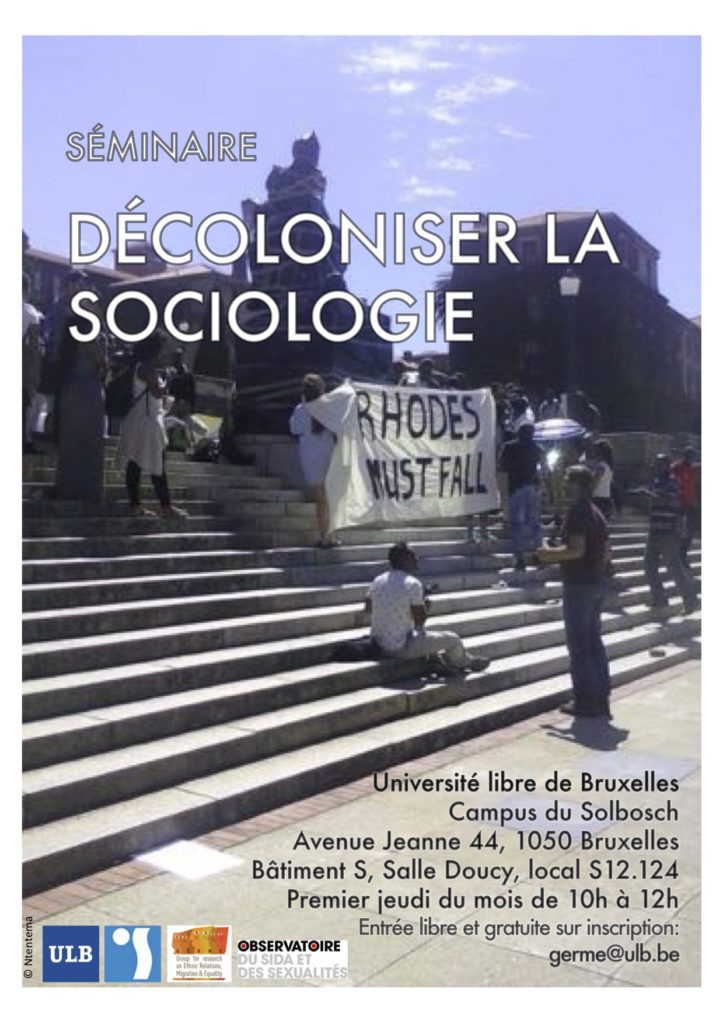2 décembre 2021
Gurminder K. Bhambra (University of Sussex) et John Holmwood (University of Nottingham)
Présentation de Colonialism and Modern Social Theory, London, Polity Press, 2021.
Discutante : Bambi Ceuppens (Tervuren)
The consolidation of modern social theory, in the writings of Marx, Weber, and Durkheim, coincided with the height of European empires and global war between them. Yet, empire lay outside the purview of mainstream social theory except as a phenomenon associated with earlier historical periods and civilisations. Even in the work of Du Bois – a theorist excluded from the canon until recently – the issue of colonialism was not immediately evident, but something worked towards from an initial address of the seeming particularities of race relations in the US. As social theory developed into sociology in the mid-twentieth century, most European countries were confronted by anti-colonial movements and challenges to their global dominance. However, these challenges to the political structures of European modernity, similarly, seemed not to impinge on what sociology came to see as its ‘jurisdiction’ – namely, issues of class, gender, and sexuality. The issue is not simply to add colonialism to sociology’s repertoire of topics, but to show how that repertoire must change and the concepts and methodologies with which it is associated be transformed. What does it mean to ‘decolonise’ a curriculum of sociology in which colonialism has been unrecognised?

Séminaire
2021-2022
Coordination
Sarah Demart
Université libre de Bruxelles | Faculté des Sciences Psychologiques et de l’Éducation | Observatoire du sida et des sexualités | STRIGES
Abdellali Hajjat
Université libre de Bruxelles | Institut de sociologie | GERME
PROGRAMME (PDF)
En pratique
2 décembre 2021 de 10h à 12h
Séance en ligne
Participation libre et gratuite sur inscription: germe@ulb.be



